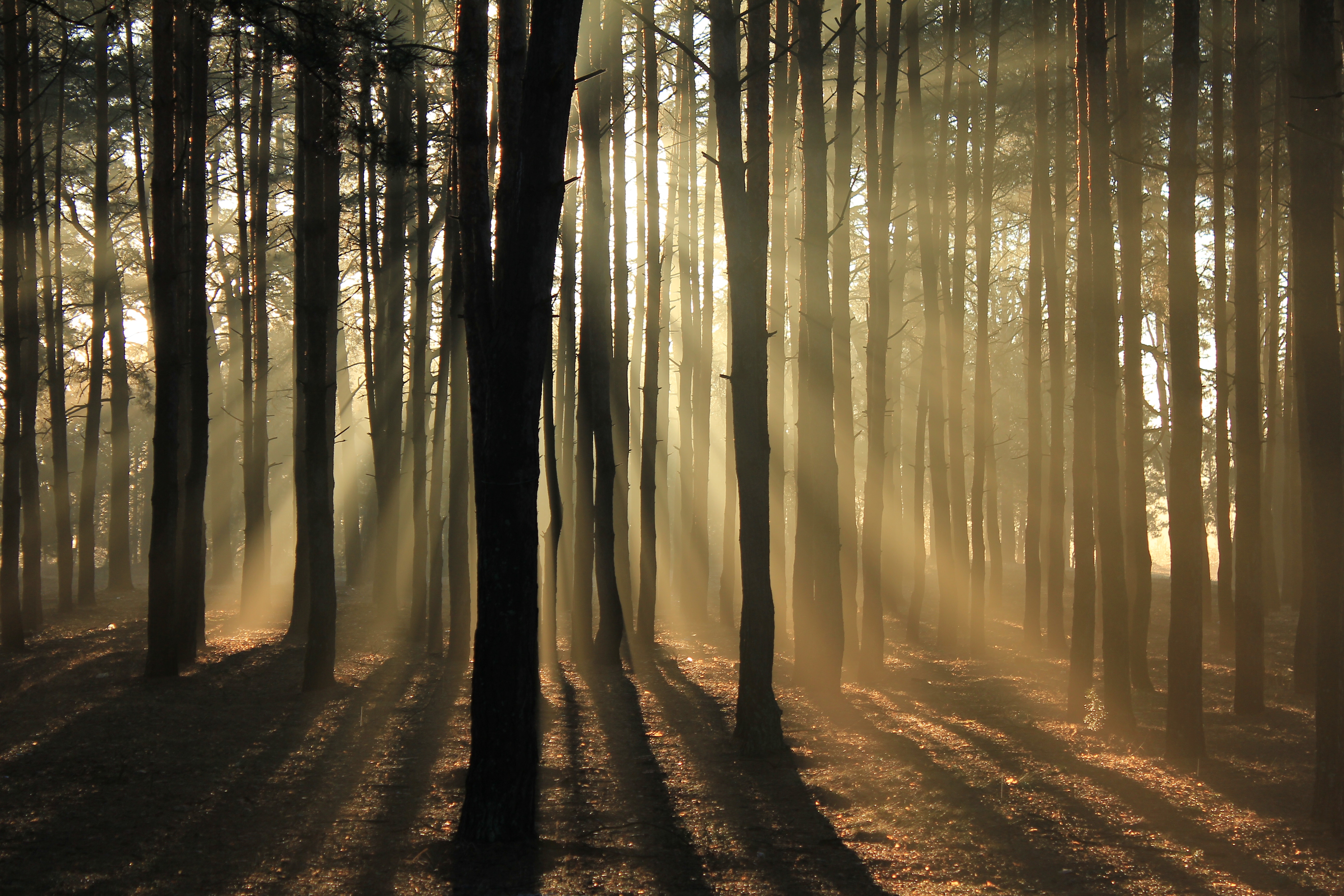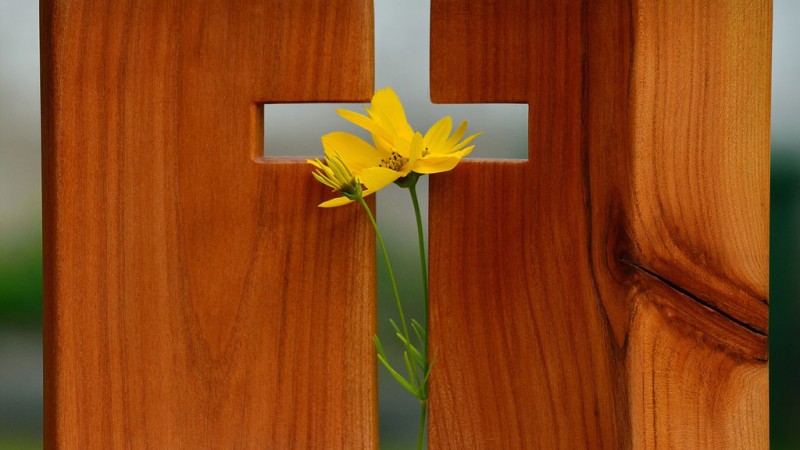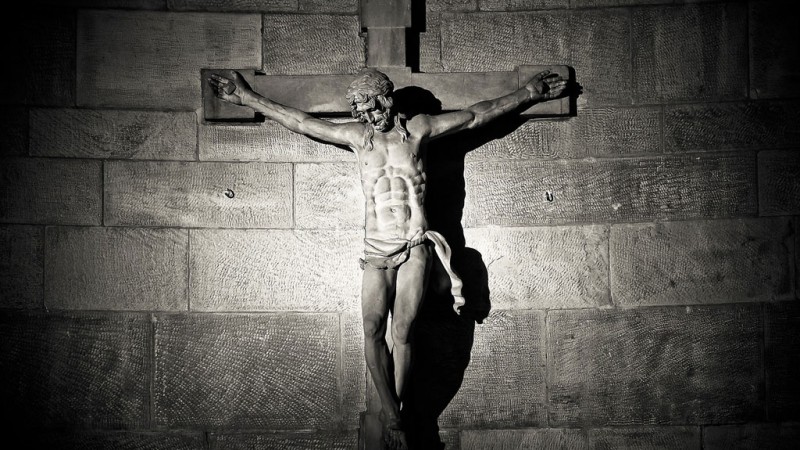
This Random Nun Clip is from our In Good Faith podcast with Sisters Margaret Nacke, CSJ, and Ann Oestreich, IHM.Hear the full podcast at IGF027.
Let us know your thoughts about the podcast by taking this short survey! Your input helps us shape the future of In Good Faith podcasts! Click HERE to take the survey. Thank you!
 Sister Margaret is a member of the Congregation of Saint Joseph (CSJ), of Concordia, Kansas. She is the founder of the Bakhita Initiative, which provides resources and networking among Catholic sisters to end human trafficking.
Sister Margaret is a member of the Congregation of Saint Joseph (CSJ), of Concordia, Kansas. She is the founder of the Bakhita Initiative, which provides resources and networking among Catholic sisters to end human trafficking.
 Sister Ann is a member of the Sisters, Servants of the Immaculate Heart of Mary (IHM), of Monroe, Michigan. She serves as the Congregation Justice Coordinator for the Sisters of the Holy Cross, in Notre Dame, Indiana. She works extensively with religious congregations in the area of peace and justice.
Sister Ann is a member of the Sisters, Servants of the Immaculate Heart of Mary (IHM), of Monroe, Michigan. She serves as the Congregation Justice Coordinator for the Sisters of the Holy Cross, in Notre Dame, Indiana. She works extensively with religious congregations in the area of peace and justice.
Sister Maxine
This Random Nun Clip is brought to you by A Nun's Life Ministry.
Sister Julie
Today we talk with Sister Margaret Nacke, and Sister Ann Oestreich.
Sister Maxine
Sister Margaret is a member of the Sisters of St. Joseph of Concordia, Kansas. She's the founder of the Bakhita Initiative, which promotes networking and provides resources to end human trafficking
Sister Julie
Sister Ann is a member of the Sisters, Servants of the Immaculate Heart of Mary of Monroe, Michigan. She serves as the congregation justice coordinator for the Sisters of the Holy Cross in Notre Dame, Indiana. She has extensive experience working with religious congregations in the area of peace and justice.
Sister Maxine
You both have a lot of experience in those works of justice in the area of human trafficking, in particular, Sister Margaret. I'd like to start off by asking you just to briefly describe what human trafficking is.
Sister Margaret
Human trafficking is taking a person by force, fraud, or coercion, and exploiting them for sex or labor. It's an assault, horrendous assault on the dignity of the person. And I think that that we as sisters have been oriented to--I think we [have] an education and a justice gene in our DNA. And so we've always been concerned about everyone, but particularly girls. We've traditionally run academies, women's colleges, and so on. And probably the reason that trafficking so grips me, or so grips us as sisters, is that assault, but also on women, because over 80% of the persons who are trafficked are girls and young women. And it destroys their lives. We think they've been found as young as nine years old. Average age is 12 years old, when girls get involved. What's happening really is this wiping out the dignity of the person and using them for commodity.
Sister Julie
Sister Margaret, are these young women taken from their homes and from communities? Are they taken into human trafficking? Or are they people that you might still bump into at your classes or in the community?
Sister Margaret
The big places where girls who are trafficked are from are from countries of origin, places where there is extreme poverty and vulnerability. I doubt if you would see them in your classes, but you could. There have been university students who have been trafficked. How the trafficker, in a sense, sells the future for this young woman. It's very easy to present to someone who might be feeling low or might not see a future for herself, for the trafficker to come and present them with something glorious: a good job, a good education. So they may be in class, but for the most part, I think around the world, you'll find them in the countries of origin, where there is extreme poverty.
Sister Julie
A lot of times it sounds like these are young women who end up being isolated from what is familiar to them, although, as you said, it may be the case that some may still not be quite as isolated.
Sister Margaret
That's right Isolation is, is really a good description, I think.
Sister Maxine
And in the chat room, Mark asks, "Are young women who have been bullied particularly vulnerable?"
Sister Ann
Yeah, I think they would be. I think that the bullying piece makes people, makes kids feel like they don't belong. And so they've got to go elsewhere, outside their peer group, outside of their school group, outside of the neighborhood, to try to find somewhere where they're accepted. And if a pimp or a trafficker gets a hint that that's what's happening in a young girl's life, she is groomed already for the trafficker--for him to just pluck out of that situation and say, "I love you. I'll give you what you want. I'll see that you get a good education. I accept you. You are wonderful." And at that moment, at that moment, that girl is caught. She's caught and she can't get away and she doesn't even realize it. Oh, yeah. Bullying is really very, very much a feeder--at least in this country, for human trafficking
Sister Maxine
And Sister Ann, as you describe a little bit about who traffickers might be, can you give us more information on what other characteristics of a trafficker might be, or some of the demographics of traffickers?
Sister Ann
Oh, you know, I've run into a couple of people who have been former traffickers. And you know, it would be very hard to recognize them or to say, "This is a characteristic." I think one of the reasons that human trafficking is so difficult to get a grip on is that it is so hidden in plain sight. It is out there, and we don't see it. Because everybody who is part of it looks normal. I think a lot of traffickers are not going to be the pimps that you see in the movies, wearing the gold chains and the gold rings, and being kind of out there. They don't want to be out there. They want to blend in. They want you not to be able to see them. They're people probably wounded in their own lives. Because if they weren't, they couldn't abuse other people the way that they do. There are people who see other people, who see young women, young men, women, girls, boys, as a commodity to be bought and sold. They're running a business. They're running a business and their product is other people. So they don't want you to be able to pick them out of a crowd. I think some of the things that we look for when we're looking for traffickers, especially when people are traveling, if you see someone--and it's not only men, it's women as well--someone traveling with five, six young girls around the same age. That's not grandma, because she doesn't have five grandchildren who are 12, or 5, or 6, or 13. That should be a red flag for us. You need to look really critically at what you see around you to try and pick out what might be an incident of trafficking. So it's really hard to give you a demographic or to give you a profile, except that it's the person who somehow has lost some of their humanity and is willing to strip other people of their humanity as well. It's tremendously sad.
Sister Julie
To hear full episodes of A Nun's Life podcasts, visit the podcast page at anunslife.org/podcasts.
This transcript has been lightly edited for readability.






